n-Amyl Alcohol (Pentanol) | Premium Solvent & Intermediate
$12.00 – $70.00
General Properties
- Chemical Name: n-Amyl Alcohol, 1-Pentanol
- Chemical Formula: C₅H₁₂O
- CAS Number: 71-41-0
- Molecular Weight: 88.15 g/mol
- Appearance: Clear, colorless liquid
- Odor: Mild, characteristic alcohol-like odor
- Density (@ 20°C): 0.811–0.814 g/cm³
- Boiling Point: 137–139°C (278–282°F)
- Melting Point: ~ -78°C (-108°F)
- Flash Point: ~49°C (120°F) (closed cup)
- Vapor Pressure (@ 20°C): ~2.0 mmHg
- Refractive Index (@ 20°C): 1.405–1.408
- Autoignition Temperature: ~300°C (572°F)
Purity and Composition
- Purity: ≥ 99% (industrial or reagent-grade)
- Impurities: Trace amounts of higher alcohols and water (typically ≤ 0.5%).
- Water Content: ≤ 0.2%
Solubility
- Water Solubility: Slightly soluble (~22 g/L at 25°C).
- Solubility in Organic Solvents: Fully miscible with alcohols, ethers, and most organic solvents.
Chemical Stability
- Stability: Stable under recommended storage conditions.
- Reactivity: Reacts with strong oxidizing agents and acids.
Thermal Properties
- Heat Capacity: ~2.7 J/g·K at 25°C
- Thermal Conductivity: ~0.12 W/m·K at 25°C
Documents:
Description
n-Amyl Alcohol, also known as 1-Pentanol, is a clear, colorless liquid with a mild, characteristic odor. It is a straight-chain alcohol with the chemical formula C₅H₁₂O. Known for its versatility, n-Amyl Alcohol is widely used in industrial, chemical, and laboratory applications. It is a key intermediate in the production of esters, solvents, and other compounds and is valued for its solvency, miscibility, and stability.
Applications of n-Amyl Alcohol (Pentanol):
Chemical Synthesis
- Ester Production: Used to produce esters such as amyl acetate and other compounds for use in fragrances, flavors, and plasticizers.
- Specialty Chemicals: Serves as a precursor in synthesizing specialty chemicals and intermediates.
Industrial Applications
- Solvent: Used as a solvent for resins, inks, coatings, and adhesives due to its excellent solvency properties.
- Lubricant Additive: Enhances the performance of lubricants and fuels.
- Coatings and Paints: Helps in formulations for industrial coatings and paints.
Personal Care and Cosmetics
- Perfumes and Fragrances: Utilized as a solvent to stabilize and enhance fragrance formulations.
- Cosmetic Formulations: Provides a medium for active ingredients in skincare and haircare products.
Laboratory and Research Applications
- Analytical Reagent: Employed as a reagent or solvent in analytical chemistry.
- Sample Preparation: Used in preparing chemical and biological samples for analysis.
Agricultural Applications
- Pesticide Formulations: Acts as a component in pesticide formulations for better dispersion and efficacy.
- Adjuvants: Used to enhance the performance of agricultural sprays.
Food and Beverage Industry
- Flavor Enhancements: Precursors for esters used as flavoring agents in food and beverages (in compliance with safety regulations).
Energy Sector
- Fuel Additive: Contributes to improving the performance of biofuels and other energy products.
Environmental Applications
- Chemical Testing: Used in environmental analysis and testing for water and soil samples.
Miscellaneous Uses
- Plasticizer Production: Used in the synthesis of plasticizers to improve the flexibility and durability of plastics.
- Textile Industry: Functions as a processing aid in textile manufacturing.
Storage and Handling
- Storage Temperature: Keep between 15°C and 30°C (59°F–86°F).
- Packaging: Typically stored in tightly sealed HDPE or stainless steel containers.
- Shelf Life: 2–3 years when stored properly in a cool, dry, and well-ventilated area.
Safety Information
- Hazards:
- Flammable liquid and vapor.
- Can cause skin and eye irritation.
- May be harmful if ingested, inhaled, or absorbed through the skin.
- First Aid:
- Skin Contact: Wash with soap and water.
- Eye Contact: Flush with water for at least 15 minutes.
- Inhalation: Move to fresh air; seek medical attention if symptoms persist.
- Ingestion: Do not induce vomiting; seek immediate medical attention.
Chemical Safety:


Flammable liquid and vapor.
Causes skin and respiratory irritation.
Causes serious eye damage
Harmful if inhaled.
Harmful if inhaled.
Additional information
| Size | 100mL (3.3 Fl Oz), 500mL (16 Fl Oz), 1000mL (32 Fl Oz), 1 Gallon (128 Fl Oz) |
|---|
Be the first to review “n-Amyl Alcohol (Pentanol) | Premium Solvent & Intermediate” Cancel reply
Related products
-
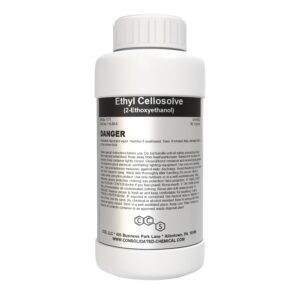
Ethyl Cellosolve (2-Ethoxyethanol) – Reagent Grade
$22.00 – $79.99 Select options This product has multiple variants. The options may be chosen on the product page -
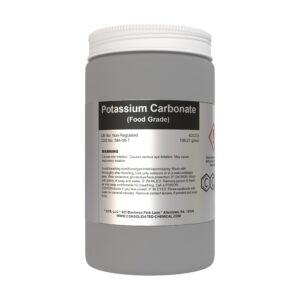
Potassium Carbonate – Food Grade (E501)
$24.99 – $39.99 Select options This product has multiple variants. The options may be chosen on the product page -
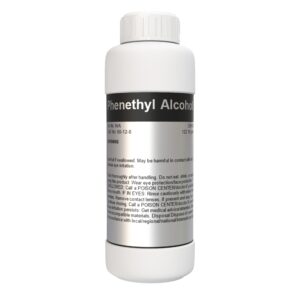
Phenethyl Alcohol | Fragrance & Aroma Compound
$12.00 – $23.00 Select options This product has multiple variants. The options may be chosen on the product page -
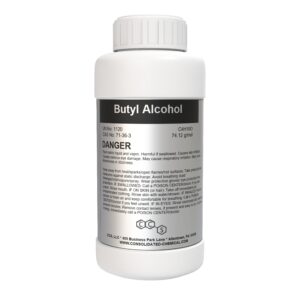
Butyl Alcohol (Butanol) – Premium Grade Solvent
$24.00 – $120.00 Select options This product has multiple variants. The options may be chosen on the product page
SKU: 7147
Category: Technical Grade Chemicals (7)
Tags: 1-Pentanol, agricultural solvent, alcohol, buy n-amyl alcohol online, CAS 71-41-0, Chemical Intermediate, fragrance-grade Pentanol, high-purity 1-Pentanol, high-purity n-Amyl Alcohol, industrial-grade Pentanol, n-Amyl, n-Amyl Alcohol, n-amyl alcohol ACS grade, n-amyl alcohol air purification, n-amyl alcohol anti-inflammatory, n-amyl alcohol antibacterial, n-amyl alcohol antifungal, n-amyl alcohol antimicrobial, n-amyl alcohol antioxidant, n-amyl alcohol biodegradable, n-amyl alcohol botanical extract, n-Amyl Alcohol bulk, n-amyl alcohol bulk availability, n-amyl alcohol bulk supplier, n-amyl alcohol calming fragrance, n-amyl alcohol certified quality, n-amyl alcohol chemical intermediate, n-amyl alcohol chemical raw material, n-amyl alcohol commercial use, n-amyl alcohol cruelty-free, n-amyl alcohol custom formulations, n-amyl alcohol degreaser ingredient, n-amyl alcohol distributor, n-amyl alcohol eco-friendly, n-amyl alcohol flavoring agent, n-amyl alcohol food grade, n-amyl alcohol for beauty products, n-Amyl Alcohol for coatings, n-Amyl Alcohol for esters, n-amyl alcohol for holistic health, n-amyl alcohol for natural perfumes, n-amyl alcohol for natural sprays, n-amyl alcohol for pain relief, n-amyl alcohol for personal hygiene, n-amyl alcohol for resin formulations, n-amyl alcohol for sensitive skin, n-amyl alcohol fresh scent, n-amyl alcohol herbal remedies, n-amyl alcohol high purity, n-amyl alcohol high-performance solvent, n-amyl alcohol household cleaning, n-amyl alcohol hydrophobic properties, n-amyl alcohol in adhesives, n-amyl alcohol in agriculture, n-amyl alcohol in animal nutrition, n-amyl alcohol in aromatherapy, n-amyl alcohol in bath salts, n-amyl alcohol in beverages, n-amyl alcohol in biochemistry, n-amyl alcohol in body mists, n-amyl alcohol in cleaning agents, n-amyl alcohol in colognes, n-amyl alcohol in eco-friendly formulations, n-amyl alcohol in food additives, n-amyl alcohol in green chemistry, n-amyl alcohol in handmade cosmetics, n-amyl alcohol in herbal extracts, n-amyl alcohol in herbal medicine, n-amyl alcohol in lip care, n-amyl alcohol in massage oils, n-amyl alcohol in meditation blends, n-amyl alcohol in organic beauty, n-amyl alcohol in organic fertilizers, n-amyl alcohol in organic formulations, n-amyl alcohol in organic synthesis, n-amyl alcohol in paints, n-amyl alcohol in pesticide formulations, n-amyl alcohol in plant protection, n-amyl alcohol in printing industry, n-amyl alcohol in spiritual products, n-amyl alcohol in sun care products, n-amyl alcohol in sustainable manufacturing, n-amyl alcohol in topical balms, n-amyl alcohol in varnishes, n-amyl alcohol industrial cleaner, n-amyl alcohol industrial grade, n-amyl alcohol ink solvent, n-amyl alcohol insect repellent, n-amyl alcohol lab reagent, n-amyl alcohol laboratory grade, n-amyl alcohol leading industry standard, n-amyl alcohol livestock feed additive, n-amyl alcohol luxury skincare, n-amyl alcohol manufacturer, n-amyl alcohol medicinal benefits, n-amyl alcohol moisture retention, n-amyl alcohol multipurpose chemical, n-amyl alcohol natural cleaning agent, n-amyl alcohol natural pesticide, n-amyl alcohol non-drying solvent, n-amyl alcohol non-GMO, n-amyl alcohol non-toxic solvent, n-amyl alcohol odor masking agent, n-amyl alcohol odor neutralizer, n-amyl alcohol organic farming, n-amyl alcohol oxidization resistance, n-amyl alcohol paraben-free, n-amyl alcohol personal care ingredient, n-amyl alcohol pH neutral, n-amyl alcohol pharmaceutical applications, n-amyl alcohol pharmaceutical research, n-amyl alcohol plant growth stimulant, n-amyl alcohol polymer additive, n-amyl alcohol price per kg, n-amyl alcohol reagent grade, n-amyl alcohol renewable resource, n-amyl alcohol research chemical, n-amyl alcohol safe for cosmetics, n-Amyl Alcohol solvent, n-amyl alcohol specialized applications, n-amyl alcohol stability, n-amyl alcohol sulfate-free, n-amyl alcohol sustainable sourcing, n-amyl alcohol terpene profile, n-amyl alcohol trending ingredient, n-amyl alcohol trusted supplier, n-amyl alcohol vegan formulations, n-amyl alcohol wellness products, n-amyl alcohol wholesale, n-amyl alcohol worldwide shipping, Organic Solvent, Pentanol, pentanol ACS grade, pentanol air purification, pentanol anti-inflammatory, pentanol antibacterial, pentanol antifungal, pentanol antimicrobial, pentanol antioxidant, pentanol biodegradable, pentanol botanical extract, pentanol bulk availability, pentanol bulk supplier, pentanol calming fragrance, pentanol certified quality, pentanol chemical intermediate, pentanol chemical raw material, pentanol commercial use, pentanol cruelty-free, pentanol custom formulations, pentanol degreaser ingredient, pentanol distributor, pentanol eco-friendly, pentanol flavoring agent, pentanol food grade, pentanol for beauty products, Pentanol for chemical synthesis, pentanol for coatings, Pentanol for cosmetics, pentanol for holistic health, Pentanol for industrial applications, Pentanol for inks, Pentanol for laboratory use, Pentanol for lubricants, pentanol for natural perfumes, pentanol for natural sprays, pentanol for pain relief, Pentanol for perfumes, pentanol for personal hygiene, Pentanol for research, pentanol for resin formulations, Pentanol for resins, pentanol for sensitive skin, pentanol fresh scent, pentanol herbal remedies, pentanol high purity, pentanol high-performance solvent, pentanol household cleaning, pentanol hydrophobic properties, pentanol in adhesives, pentanol in agriculture, pentanol in animal nutrition, pentanol in aromatherapy, pentanol in bath salts, pentanol in beverages, pentanol in biochemistry, pentanol in body mists, pentanol in cleaning agents, pentanol in colognes, pentanol in eco-friendly formulations, pentanol in food additives, pentanol in green chemistry, pentanol in handmade cosmetics, pentanol in herbal extracts, pentanol in herbal medicine, pentanol in lip care, pentanol in massage oils, pentanol in meditation blends, pentanol in organic beauty, pentanol in organic fertilizers, pentanol in organic formulations, pentanol in organic synthesis, pentanol in paints, pentanol in pesticide formulations, pentanol in plant protection, pentanol in printing industry, pentanol in spiritual products, pentanol in sun care products, pentanol in sustainable manufacturing, pentanol in topical balms, pentanol in varnishes, pentanol industrial cleaner, pentanol industrial grade, pentanol ink solvent, pentanol insect repellent, pentanol lab reagent, pentanol laboratory grade, pentanol leading industry standard, pentanol livestock feed additive, pentanol luxury skincare, pentanol manufacturer, pentanol medicinal benefits, pentanol moisture retention, pentanol multipurpose chemical, pentanol natural cleaning agent, pentanol natural pesticide, pentanol non-drying solvent, pentanol non-GMO, pentanol non-toxic solvent, pentanol odor masking agent, pentanol odor neutralizer, pentanol organic farming, pentanol oxidization resistance, pentanol paraben-free, pentanol personal care ingredient, pentanol pH neutral, pentanol pharmaceutical applications, pentanol pharmaceutical research, pentanol plant growth stimulant, pentanol polymer additive, pentanol reagent grade, pentanol renewable resource, pentanol research chemical, pentanol safe for cosmetics, pentanol solvent, pentanol specialized applications, pentanol stability, pentanol sulfate-free, pentanol sustainable sourcing, pentanol terpene profile, pentanol trending ingredient, pentanol trusted supplier, pentanol vegan formulations, pentanol wellness products, pentanol wholesale, pentanol worldwide shipping, reagent-grade n-Amyl Alcohol, solvent for adhesives, solvent for fuels


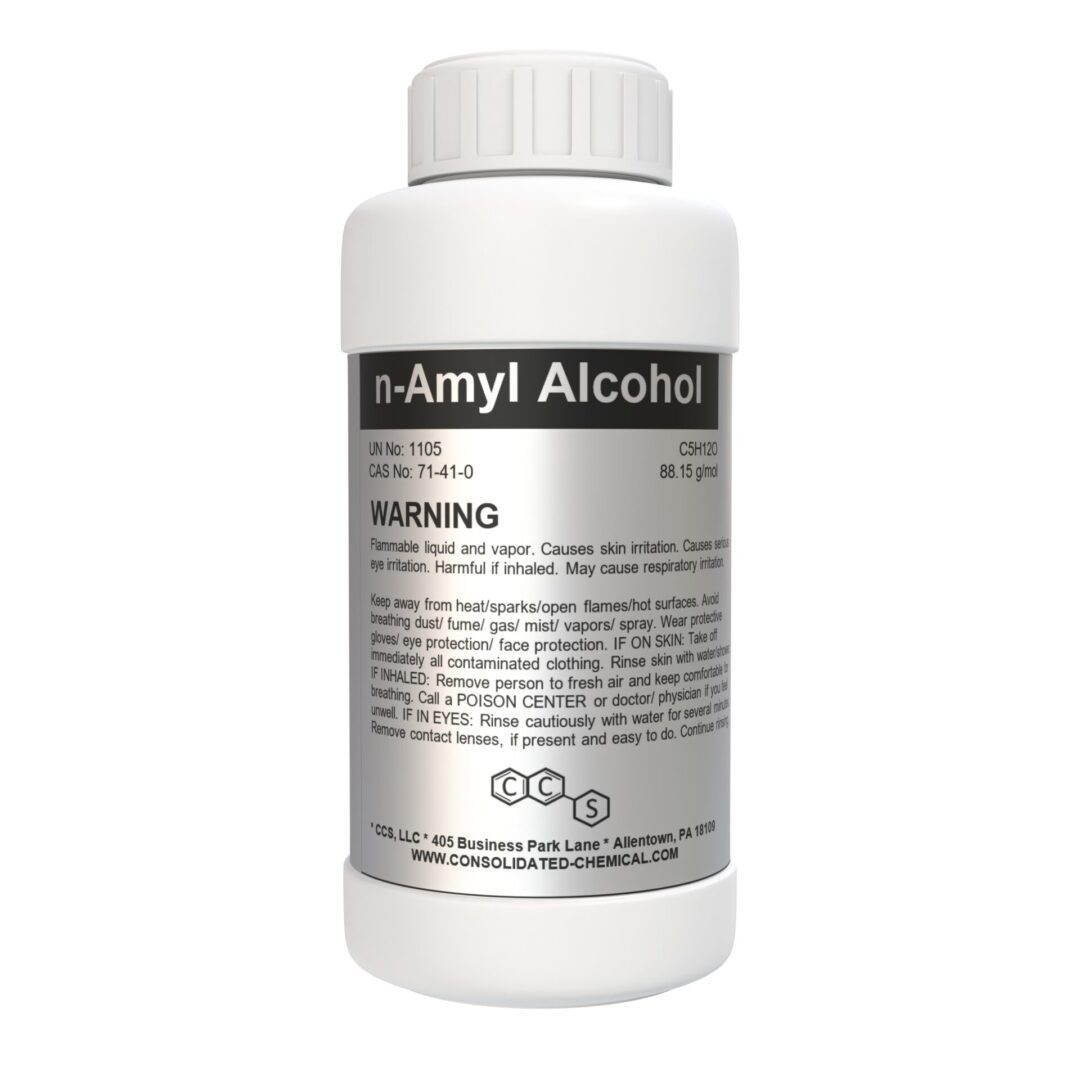
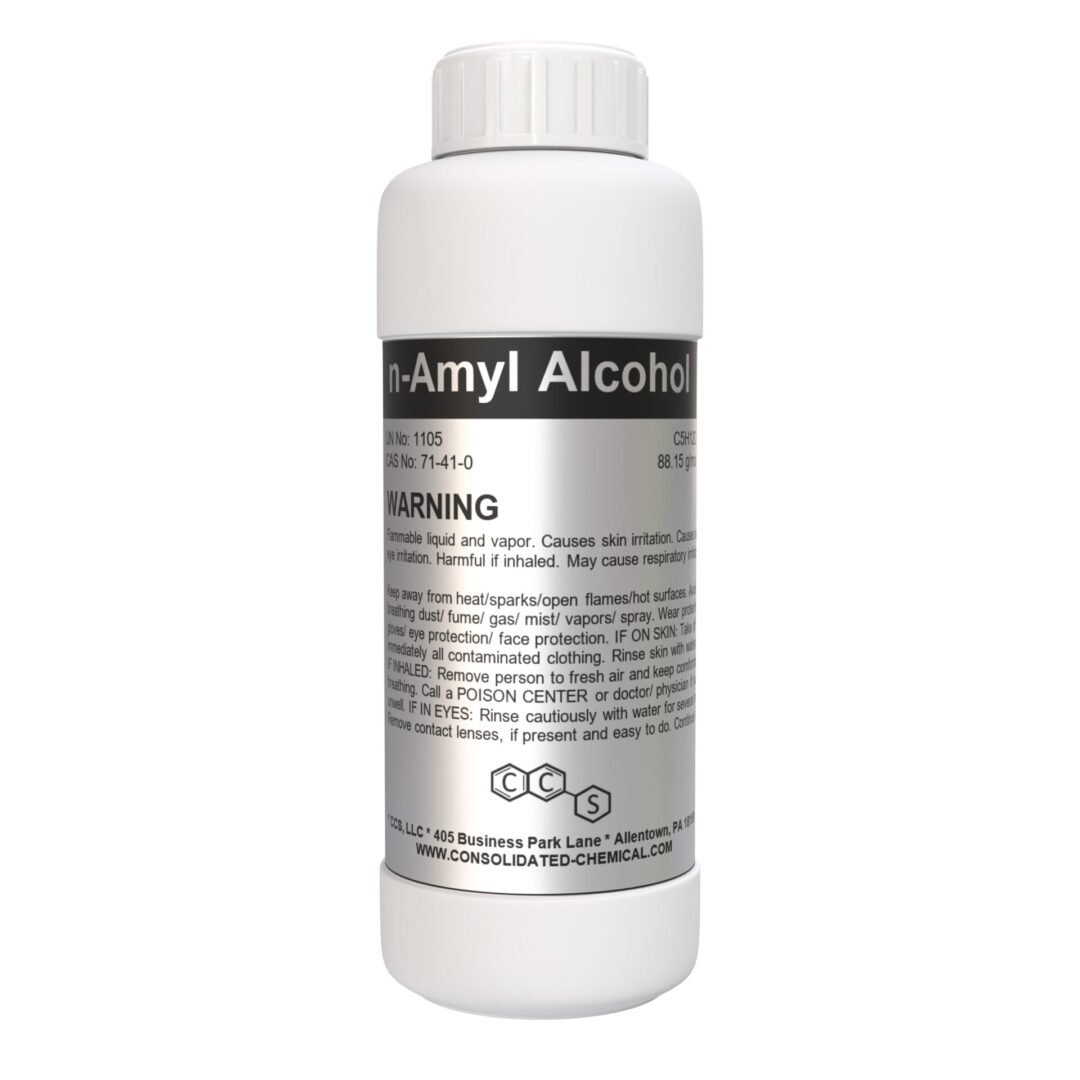
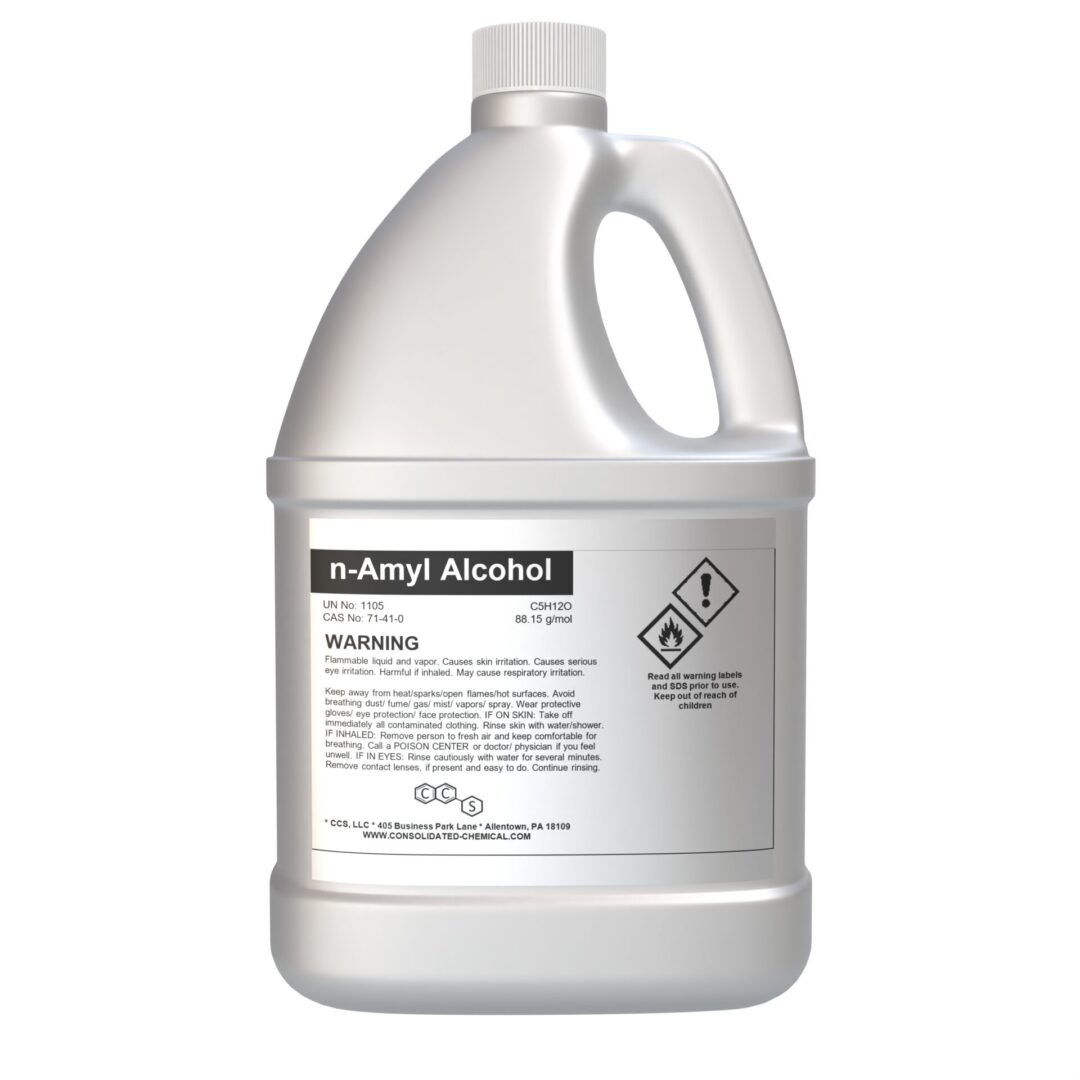
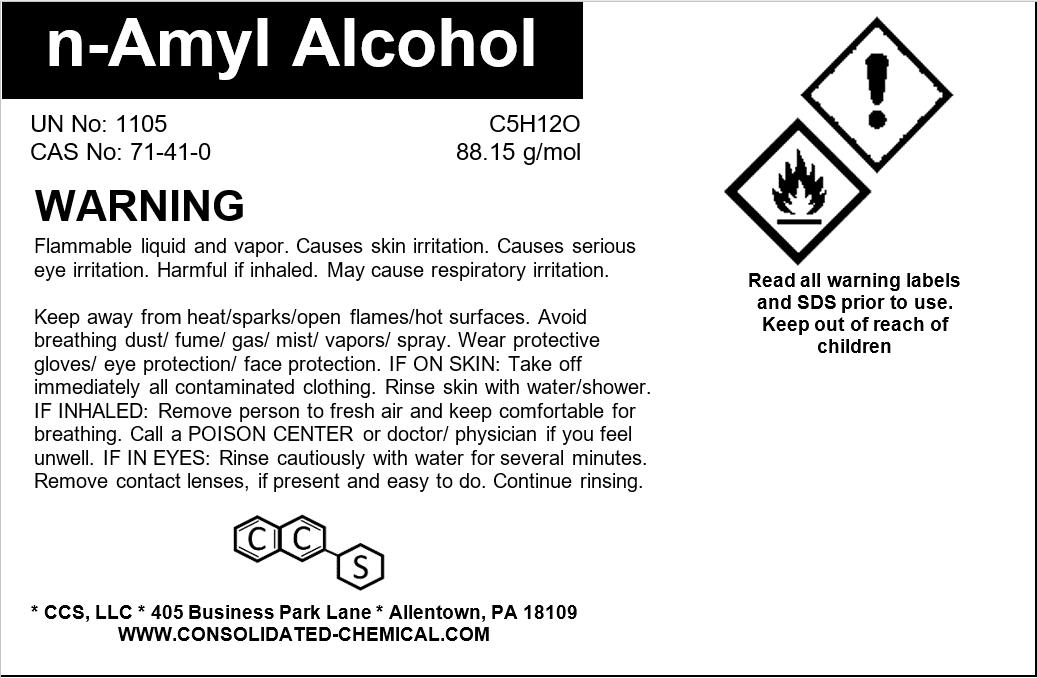
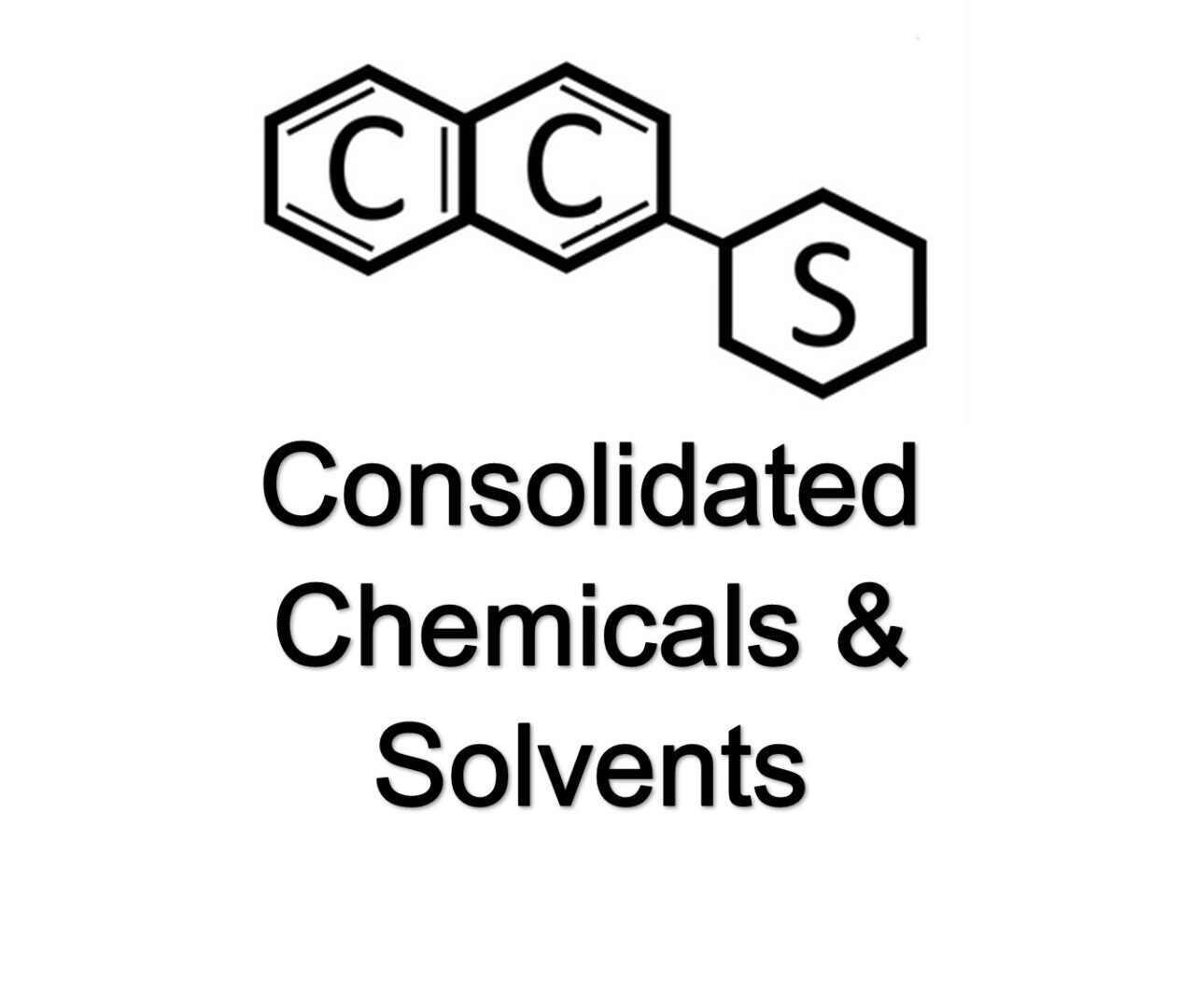
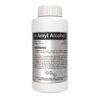
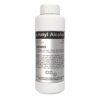
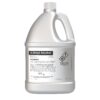
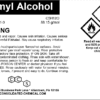
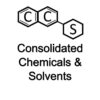
Reviews
There are no reviews yet.